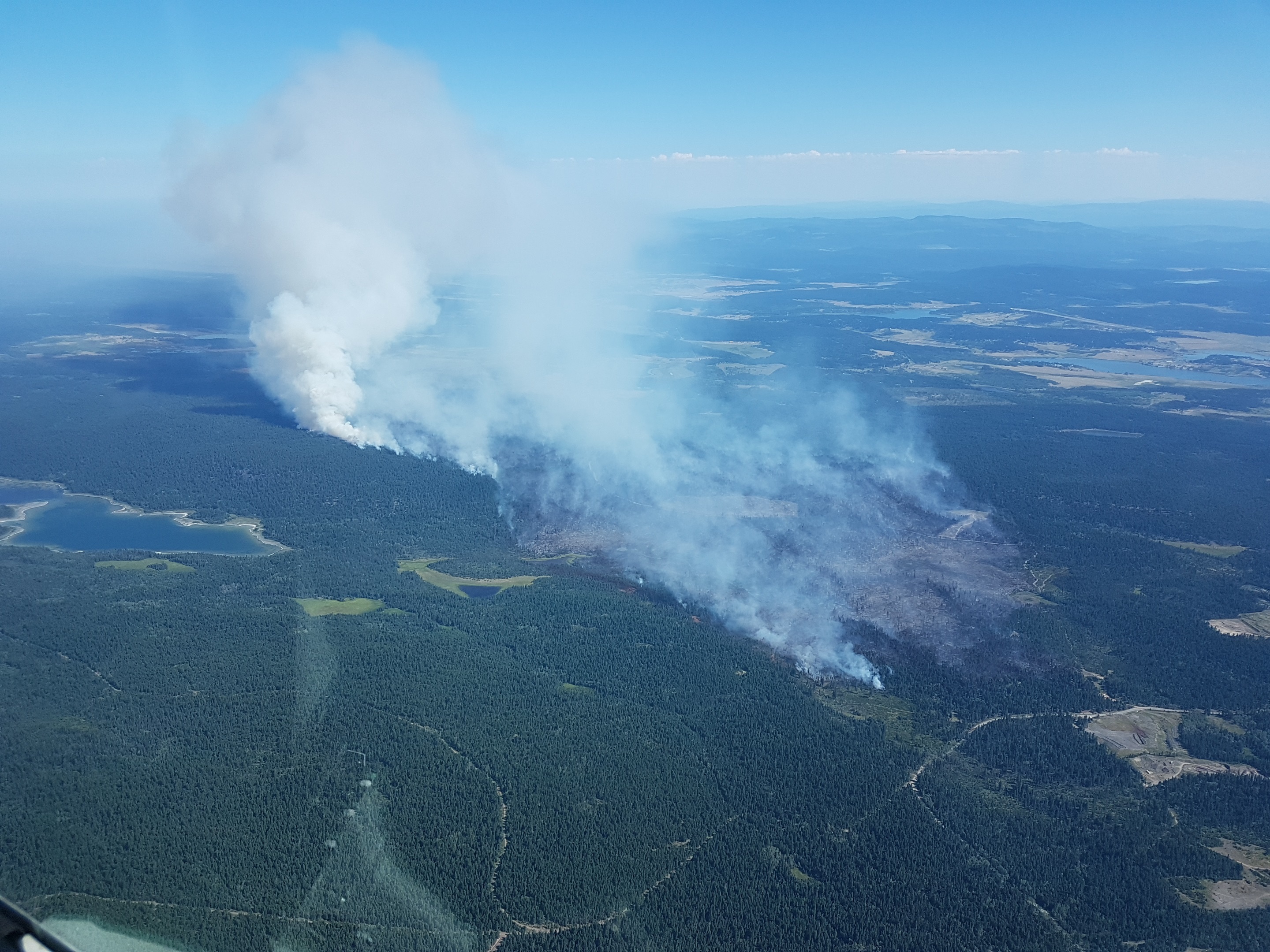To:
Karyn Pugliese, president, Canadian Association of Journalists
Martin O’Hanlon, president, CWA Canada
Fiona Conway, president, Radio Television Digital News Association
John Hinds, president and chief executive officer, News Media Canada
Jerry Dias, national president, Unifor
Cc:
Canada’s editors, news directors, publishers and station managers
On May 6, the United Nations released a scientific report warning that around a million species are threatened with extinction due to human activity, including climate change. But, according to an analysis by Media Matters for America, on the day of that release, the nightly newscasts of ABC and NBC felt it was more important that their audiences learned about the birth of the newest royal baby — someone who will likely never have any say over their day-to-day lives. And I’ve found most of Canada’s 15 most-read English language daily broadsheets felt the same way.
Between May 6 and 7, 13 of those newspapers failed to front stories about the United Nations’ devastating finding. Instead, the National Post ran a story about the Duke and Duchess of Sussex’s son, with 10 others teasing that birth on their front pages. Eight of the teasers were placed above-the-fold, next to a photograph, or both — drawing reader attention to pictures of Harry, Meghan and their beaming well-wishers.
By comparison, six of the 13 newspapers ran front page teasers about the extinction report. Just one of those teasers was placed above the fold and none were accompanied by photographs. Only the Globe and Mail and the Toronto Star did more than that, fronting stories about that report. It turns out that most of the country’s other major broadsheets concluded that proof of a dying planet was less newsworthy than puffery about a newborn baby.
In reaching that conclusion, they provided yet another example of the mainstream Canadian news media’s repeated failure to apply basic journalism principles to the climate change crisis confronting us. The consequences of that failure could be catastrophic for our world, as well as our country, which is the fourth largest global producer of oil and one of the planet’s largest greenhouse gas emitters. And that’s why I’m calling on you, as a leader of an association representing Canadian journalists or news organizations, to support a five-point plan for covering that disaster and encourage your members to do the same.
In doing so, I want to be clear that I am not recommending journalists become activists. That isn’t our role, except when promoting and defending the rights and freedoms necessary for a functioning free press. However, we are responsible for ensuring Canadians have the information needed to make the rational and empathetic decisions that are supposed to underpin our political and economic systems, whether that’s at the ballot box or the checkout line. And we are further responsible for exposing public and private institutions when they are harming Canadians with their actions or inactions.
By that standard, the climate crisis should be the biggest story of our time. Due to government and corporate actions and inactions, we can expect a multitude of tribulations to be visited upon us. For example, by 2050, decreases in food availability caused by global warming could cause 529,000 additional deaths in that year alone. That warming could also cause as many as one billion people to flee their homes. And, in the United States, the cost of climate change could be US$35 billion per year.
However, in searching Canadian Newsstream — a database of 569 different English language Canadian news sources that includes a majority of the country’s newspapers, as well as CBC and CTV’s televised national evening newscasts — I have found our mainstream media too often does not reflect the scope and severity of that crisis in five important ways. In addition to failing to prominently place news about this story it has:
- Failed to cover news about the climate crisis. For example, on Oct. 15, the House of Commons held an emergency debate on that crisis. According to Canadian Newsstream, between that date and Oct. 22, the Canadian Press, our country’s national wire service, produced two stories covering it that may have been carried by other news outlets. The debate was also mentioned twice on CTV’s Power Play with Don Martin, and once by CTV National News and the Northumberland News, a newspaper in Cobourg, Ont. Finally, Postmedia produced an editorial claiming “this sort of fear-mongering doesn’t help the environment or Canadians.” The editorial was published in 22 newspapers. In other words, these sources seemed more interested in convincing Canadians there isn’t a climate crisis than actually reporting on it.
- Failed to localize international news about the climate crisis, reporting on what those stories mean for Canadians, as well as holding governments and corporations to account for them. For example, Pope Francis I has long warned about the dangers of climate change. At a Vatican conference in June 2018, he even urged oil and gas executives gathered there to switch to green energy to avoid a calamitous rise in global temperatures. This was an opportunity for Canadian journalists to ask our own executives for their responses to that statement. It was also an opportunity to ask the country’s Catholic priesthood if they have been preaching the same message from their pulpits and if the church’s believers are heeding the Pope’s warning. But none of the sources in Canadian Newsstream appear to have taken advantage of those opportunities, even though the news media routinely asks these sorts of accountability questions when other interest groups make calls for action or publicize their research. Just look at what happened when the right-wing Fraser Institute released its controversial annual report card of Ontario secondary schools on May 5, a day before the United Nations extinction report was made public. Journalists from outlets such as the CBC, the Toronto Sun and the Windsor Star all asked schools for comments on the grades they received; and
- Failed to routinely contextualize news about the climate crisis. For example, between Aug. 15 and Sept. 7, 2018, British Columbia was under a state of emergency as a result of forest fires that were spreading smoke across the Rockies and into Alberta, creating a public health and safety disaster. During that time, the Canadian Press, as well as the Calgary Herald, the Edmonton Journal and the Vancouver Sun (the three most-read local daily broadsheets in the two provinces), produced 182 unique reports, columns, editorials, or op-eds referencing those fires or their effects. Just 14 or 7.7 per cent of those items mentioned the demonstrable connection between the climate crisis and increasing wildfire activity, even though it was one of the major reasons why that season was the worst on record for British Columbia. This is the equivalent of reporting on the overdose epidemic or a terrorist bombing without naming the drug or group responsible — something we would never do in any other kind of day-to-day coverage since audiences must know the cause of an event to understand it.
These are unconscionable failures of journalism, nothing more and nothing less. If we continue in these failures, we could be contributing to the deaths of millions. That’s not hyperbole. That’s a scientific estimate. And the science surrounding the harm humans are causing to our environment has long ago reached the certainty required for comprehensive and aggressive news coverage, as well as immediate political action.
So, in 2030, when we hit the deadline to reduce our carbon emissions by 45 per cent, do we want to say that we, as journalists, helped Canadians make the best possible personal and political decisions about this most important of issues or do we want to say we distracted them from those decisions by making the birth of a wealthy aristocrat our lead story?
We’re answering that question right now, whether we want to or not. And it’s well-past time we changed our response. So what I am asking you to do today is not dismiss this letter by defensively citing examples of when the Canadian news media has actually appropriately reported on the climate crisis. Instead, what I am asking you to do is recognize our failures, and call upon your members to do these five things: properly place, cover, contextualize, and localize the biggest story of our time, and hold public and private institutions to account for their actions and inactions on climate change — from the smallest governments to the biggest transnational corporations. It is simply our responsibility as journalists. I look forward to your prompt reply.
Sincerely,
Sean Michael Holman, associate professor of journalism, Mount Royal University ![]()
Read more: Politics, Media, Environment
















Tyee Commenting Guidelines
Comments that violate guidelines risk being deleted, and violations may result in a temporary or permanent user ban. Maintain the spirit of good conversation to stay in the discussion.
*Please note The Tyee is not a forum for spreading misinformation about COVID-19, denying its existence or minimizing its risk to public health.
Do:
Do not: